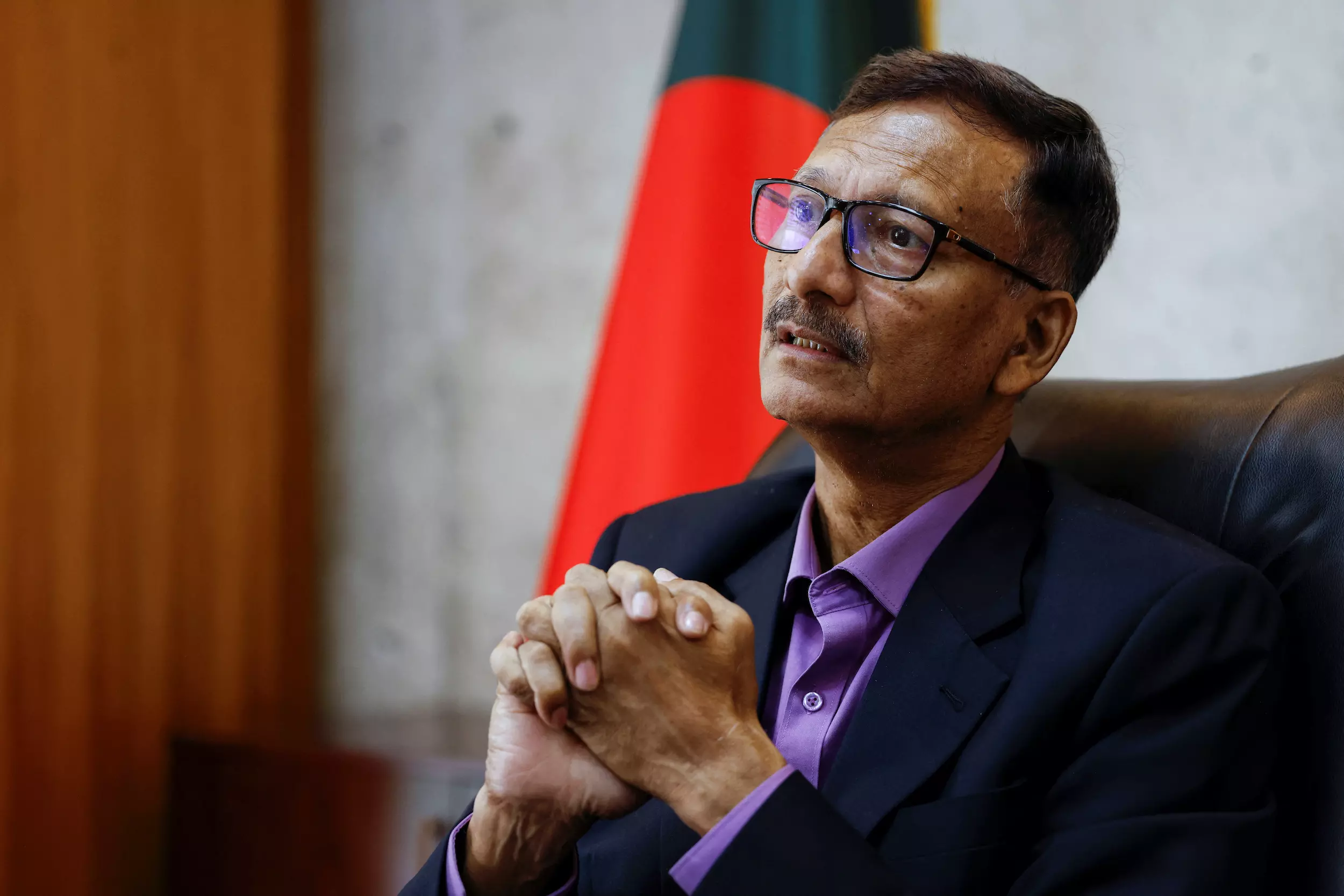Pradeep C. Nair | Keeping balance between China & US: Tough times for Yunus’ B’desh

A recent article in Pratham Alo, a Bangladeshi English daily, headlined “Touhid-Wang Meeting on 21 January: Issues to Gain Priority”, is telling on the paradoxical situation that Bangladesh is caught up in now, and raises question about the longevity and legality of the Muhammad Yunus government. Recently, Mr Yunus’ interim government announced elections would be held in the country within 18 months.
However, will Mr Yunus be able to carry out the multiple reforms that he has been promising, before that? The fact that reforms by a government that is not elected and lacks constitutional legitimacy is also not lost on anyone. The article begins by announcing a four-day visit by Bangladesh’s foreign affairs adviser Touhid Hossain to China from January 21 to 24 and then proceeds to state that “Bangladesh needs to proceed with caution since China is laying emphasis on geopolitics. It is undeniable that the West, the US in particular, has expansive support and cooperation for the present government. So, it would not be prudent for Bangladesh to take any such step that may go against the country’s interests”. The first major aspect this statement highlights is the keenness of the Chinese to have the Bangladeshi official on their soil the day Donald Trump takes over as US President (it will still be January 20 in the US when Mr Hossain meets officials in Beijing on January 21). China has thus wasted no time to work on its strategic interests in Bangladesh. The second aspect is the tacit admission in Bangladesh of the role of the US or America’s “Deep State” in orchestrating the fall of Sheikh Hasina’s government. Sheikh Hasina herself had called out the role of the US in her ouster, but the US had denied the allegations. The statement of the US was one that not many believed anyway. However, Mr Trump is a Yunus baiter since Grameen America, that Mr Yunus chaired in 2016, gave almost $250,000 to the Clinton Foundation when Hillary Clinton contested for President against Mr Trump.
Mr Hossain’s visit to Beijing is at the invitation of Wang Yi, the Chinese foreign minister. During the visit, China is likely to have geopolitics uppermost on its mind and use the changed political circumstances (and the consequent anti-India sentiments) in Bangladesh to forge closer ties. After Mr Yunus’ takeover in August last year, 12 Chinese companies have invested $210 million in Bangladesh, which is much higher than at any other time in five months! China wants to use this opportunity to build closer relations with Bangladesh by making it a zero-sum game against India. Thereby also hangs a tale that despite a US-supported administration now in Dhaka, the Chinese have no qualms on capitalising on the opportunity! Earlier, Mr Yunus had met the Chinese foreign minister on the sidelines of the United Nations General Assembly in September last year, when they discussed matters of “bilateral and strategic interest”.
It is disconcerting, however, that India-Bangladesh relations have come under stress since the political changeover in Bangladesh. There have been a series of provocations for India that includes attacks on Hindus, vandalism and desecration of temples (both claimed as exaggerated by Mr Yunus and his officials), revival of the Jamaat-e-Islami and other radicals, seeking the extradition of Sheikh Hasina, threats to “annex” parts of India by a close Yunus aide, seeking “strategic ties” and “resolution of the 1971 grievances” with Pakistan, the docking of MV Yuan Xiang Fa Zhan, a Chinese-owned merchant vessel with Pakistani cargo (part of which was questionable cargo), which was a first since 1971, easing the visa regime on Pakistan citizens, agreeing to a Pakistani proposal for joint training of the Pakistan and Bangladesh armies in Bangladesh, seeking the supply of Pakistani Hatf-II short-range missiles, increasing the import of ammunition from Pakistan, deployment of Bayraktar TB2 drones on the Indian border, reports of Bangladesh security agencies aiding the formation of two new ethnic militant outfits in Tripura, the arrest of Chinmoy Krishna Das (the Iskcon priest), attempts to rewrite history by downplaying India’s role in the liberation of Bangladesh, threats to downsize India’s trade surplus, alleging that power tariff rates of Indian companies as too high, are among those that stand out.
At a seminar recently in Bangladesh, Mr Hossain had stressed the importance of establishing seamless connectivity between Bangladesh and China through Myanmar. The current crisis in the Rakhine state of Myanmar, Bangladesh’s only entry point into Myanmar) and the Rohingya crisis in Rakhine state makes that aspiration almost impossible.
It is also interesting to note that during a recent interaction with the media, Mr Hossain had described his forthcoming visit to China as part of Dhaka’s ongoing efforts to maintain balanced relations with China, alongside the United States and India. However, will Mr Hossain’s four-day-long visit to China balance Bangladesh’s relations with the US or worsen it under Mr Trump’s watch, given his disdain for both Mr Yunus and China? Only time will tell. Are the multiple provocations by the Yunus government actually balancing relations with India? That looks improbable. What is appreciable is the diplomatic and strategic restraint that India has maintained despite all the provocative acts and statements that have come out of Dhaka. That is statesmanship at its best. The undeniable fact is that geography will have the final say in India-Bangladesh relations in times to come is something all governments in Bangladesh will have to come to terms with. The Yunus government, meanwhile, will have its hands full deciding between China (which is more than willing to resurrect the Bangladesh economy, obviously with future costs for Dhaka) and the US (which brought Mr Yunus to power in the first place) before its time runs out.

